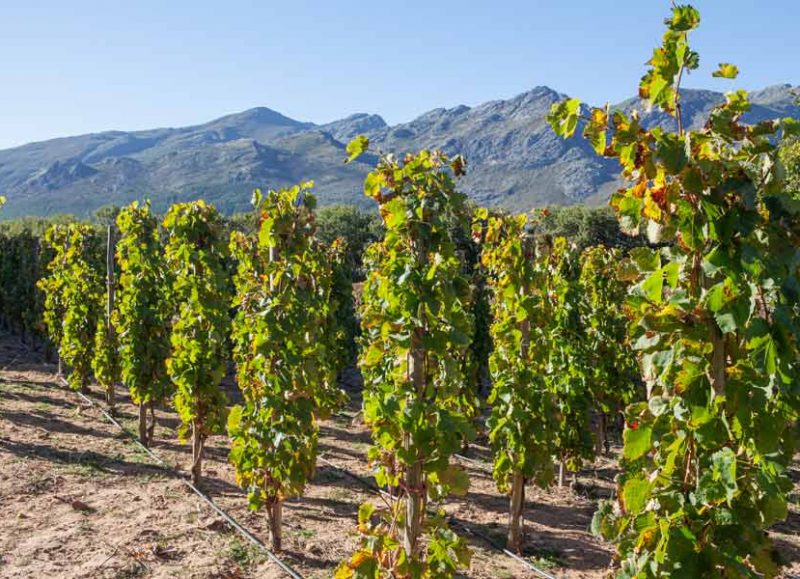Agribusiness
Overview
Agribusiness has long been a focus area for growth and development by the South African Government. The country enjoys a well-developed and globally competitive sector which has led to the creation of a sophisticated and elaborate value chain ranging from agricultural inputs, equipment, packaging, and specialised logistics. This sector provides the opportunity for both local and export markets and is a contributor to the needed job creation.
A key characteristic of the Agribusiness sector is its strong upstream and downstream linkages. Upstream, the sector links to primary agriculture across a variety of farming models and products. Downstream, Agribusiness outputs are both intermediate products to which further value is added and final goods that are marketed through wholesale and retail chains.
This link with agriculture makes it critical for employment creation and poverty eradication. Agribusiness growth can contribute strongly to poverty reduction and job creation, mainly because of its demand linkages, and because Agribusiness and related activities tend to be more labour intensive and less import intensive.
One prominent feature of Agribusiness is its continuous pursuit of new technologies. These technologies boost efficiency by reducing wasted resources, saving time, and improving output. Skills development in Agribusiness should be seen more as an investment to serve the strategic aspirations of the sector, hence there is a deliberate drive by the South African government to address skills development so that as a country we can maximize the value added to the sector.
A rapidly growth of the African continent population and an increase in middle class earnings per capita has seen an increase in investments by international Agribusiness companies in the continent. Most companies are accelerating their growth in key markets around the world and South Africa still remains the destination of choice for most companies. The likes of Diageo, Heineken, Unilever, Coca Cola, Nestle, ABInBev, In2Foods, Dr Oetker, Lactalis, Clover, PepsiCo are expanding their operations and product offering using SA as springboard to penetrate the continent.
It is imperative that SA continues striving for an improved conducive predictable investment climate to encourage more FDI.


Value Proposition
Compared to the rest of Africa, South Africa has by far the most modern, productive, and diverse Agribusiness industry. South Africa has the most diversified and industrialised economy, South Africa has a well-developed agricultural sector, which will stand the country in good stead in the face of continuing uncertainty both economically and in terms of the weather, supporting infrastructure (modern and well-developed transport logistics networks in the African continent), and skilled labour. The country has a strong financial and banking sector, healthy legal and regulatory environment for business.
In terms of opportunities, the demand for Agribusiness technology (Greenhouses, Irrigation systems, Green cold storage facilities, drones), alternative Health care outside the medical “drug” system and healthy food stuff is now a new trend and the demand is increasing. There are opportunities in the processing of fruit, oil seeds, soya, meat, and dairy.
The growing population and the growing middle class also presents an opportunity as demand for goods and services are destined to grow.
In encouraging investments, job creation, job retention and employee’s skills development the South African Government has developed a number of incentives and below are the relevant incentive programmes for Agribusiness:
Financial solutions in supporting the industry include grant finance such as:
1. Agro-processing Support Scheme – up to R20 mil Grant Incentive
2. Aquaculture Development and Enhancement Programme – up to R30 mil grant incentive
3. Black Industrialist Scheme – up to R50 mil grant incentive
4. Export Marketing and Investment Assistance – attendance at up to 6 foreign exhibitions per annum – wholly or partially subsidized
5. Capital Projects Feasibility Programme – up to R8 mil per project to support feasibility studies for agro-processing industrial projects
South Africa also has a financial institution called the Industrial Development Corporation, this institution co-funds projects in different sectors and Agribusiness is one of them.
Supporting Infrastructure
The South African government, in an effort to reposition itself in the world economy, established the Industrial Development Zones (IDZ) Programme. The Programme’s main focus is to attract Foreign Direct Investment (FDI), these IDZs provides what we call a plug and play experience to the potential investor.
In addition to the IDZs, the SA government has developed SEZs policy and legislation as one of the key instruments to accelerate the implementation of its industrialisation agenda. The programme has been designed to attract foreign and domestic direct investments.
Your Local Contact
-
Brian Soldaat
- Director: Resource-based Industries
- +27 12 394 1238
- Brians@thedtic.gov.za
Unlocking Agricultural Value Chains



